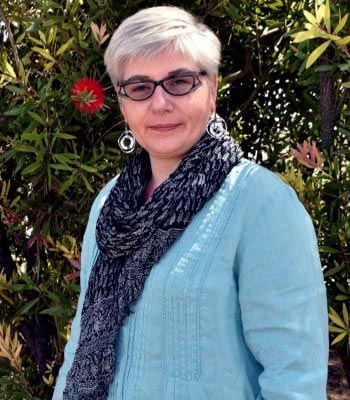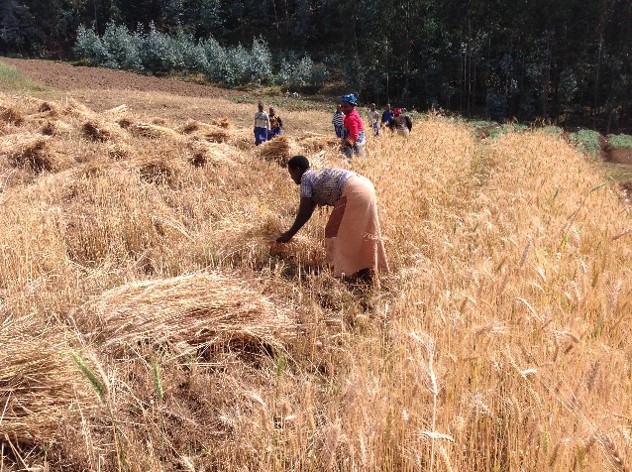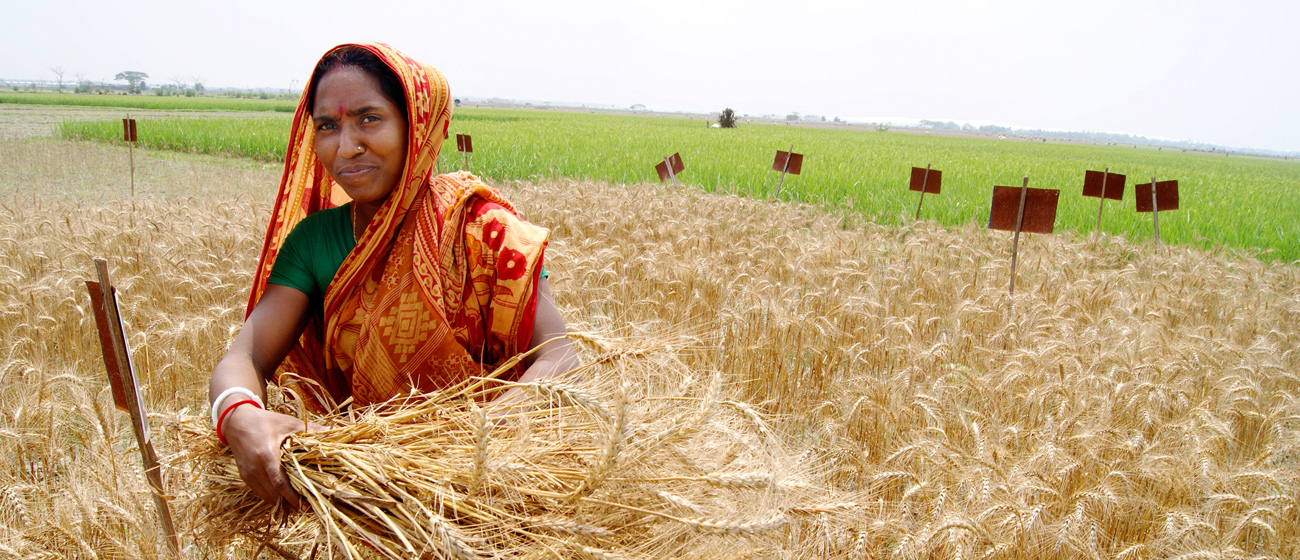FOCUS ON WOMEN CAN INADVERTENTLY END UP ALIENATING MEN
 Gender research and outreach should engage men more effectively, according to Paula Kantor, CIMMYT gender and development specialist who is leading an ambitious new project to empower and improve the livelihoods of women, men and youth in wheat-growing areas of Afghanistan, Ethiopia and Pakistan.
Gender research and outreach should engage men more effectively, according to Paula Kantor, CIMMYT gender and development specialist who is leading an ambitious new project to empower and improve the livelihoods of women, men and youth in wheat-growing areas of Afghanistan, Ethiopia and Pakistan.
“Farming takes place in socially complex environments, involving individual women and men who are embedded in households, local culture and communities, and value chains — all of which are colored by expectations of women’s and men’s appropriate behaviors,” said Kantor.
“We tend to focus on women in our work and can inadvertently end up alienating men, when they could be supporters if we explained what we’re doing and that, in the end, the aim is for everyone to progress and benefit.”
Funded by Germany’s Federal Ministry for Economic Cooperation and Development, the new project will include 14 village case studies across the three countries. It is part of a global initiative involving 13 CGIAR research programs (CRPs), including the CIMMYT-led WHEAT and MAIZE.
Participants in the global project will carry out 140 case studies in 29 countries; WHEAT and MAIZE together will conduct 70 studies in 13 countries.
Kantor and Lone Badstue, strategic leader for gender research at the International Maize and Wheat Improvement Center, are members of the executive committee coordinating the global initiative, along with Gordon Prain of CIP-led Roots, Tubers and Bananas Program, and Amare Tegbaru of the IITA-led Program on Integrated Systems for the Humid Tropics.
“The cross-CRP gender research initiative is of unprecedented scope,” said Kantor. “For WHEAT, CIMMYT, and partners, understanding more clearly how gendered expectations affect agricultural innovation outcomes and opportunities can give all of our research more ‘ooomph’, helping social and biophysical scientists to work together better to design and conduct socially and technically robust agricultural R4D, and in the end achieve greater adoption and impact.”
To that end, outcomes will include joint interpretation of results with CRP colleagues and national stakeholders, scientific papers, policy engagement and guidelines for integrating gender in wheat research-for-development, according to Kantor.
Another, longer-term goal is to question and unlock gender constraints to agricultural innovation, in partnership with communities. Kantor said that male migration and urbanization are driving fundamental, global changes in gender dynamics, but institutional structures and policies must keep pace.
“The increase in de facto female-headed households in South Asia, for example, would imply that there are more opportunities for women in agriculture,” she explained, “but there is resistance, and particularly from institutions like extension services and banks which have not evolved in ways that support and foster the empowerment of those women.”
Kantor has more than 15 years of experience in research on gender relations and empowerment in economic development, microcredit, rural and urban livelihoods, and informal labor markets, often in challenging settings. She served four years as Director and Manager of the gender and livelihoods research portfolios at the Afghanistan Research and Evaluation Unit (AREU) in Kabul.
Any views expressed in this article are those of the author and not of the International Maize and Wheat Improvement Center.
 Capacity development
Capacity development 


